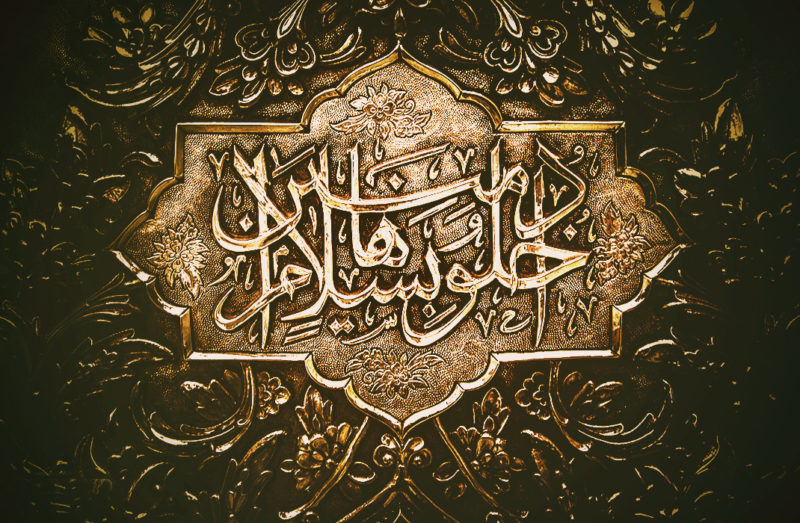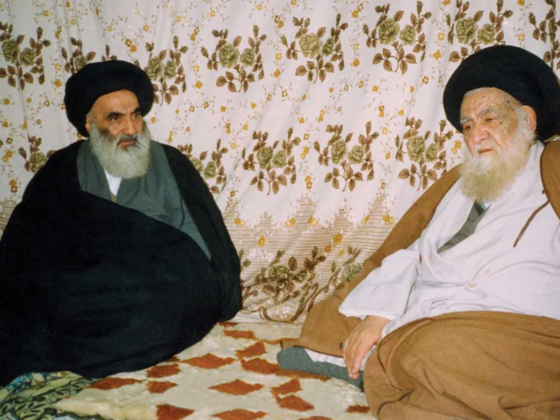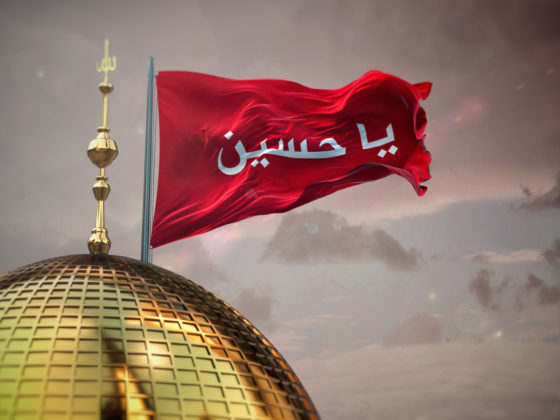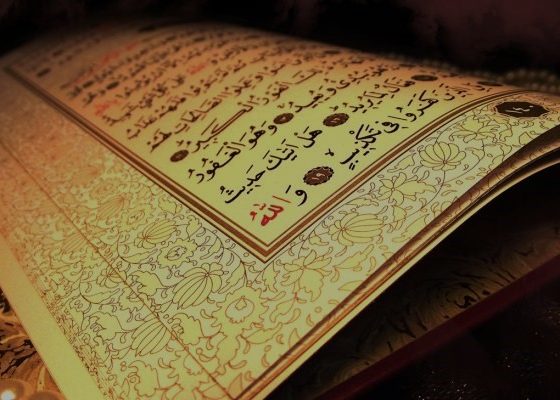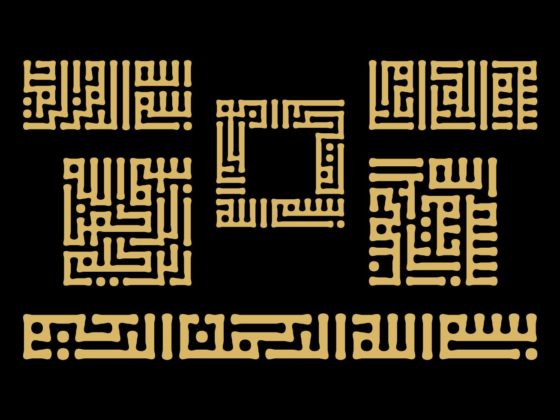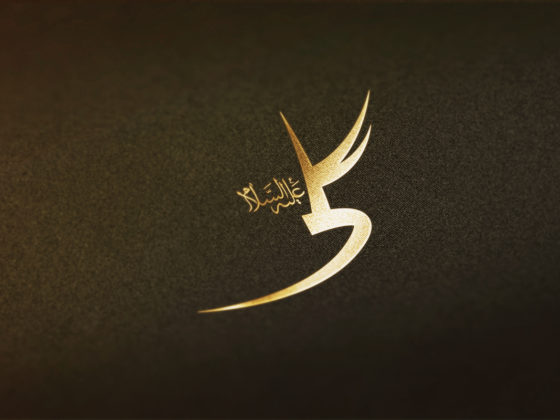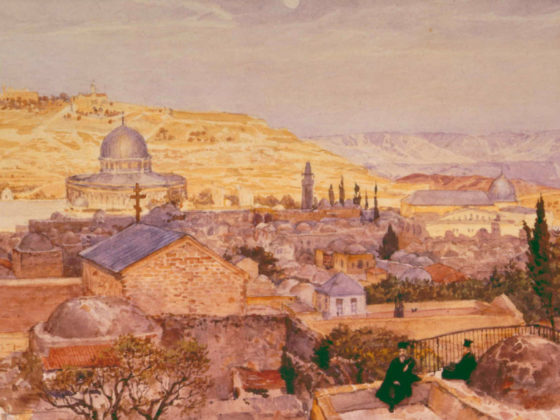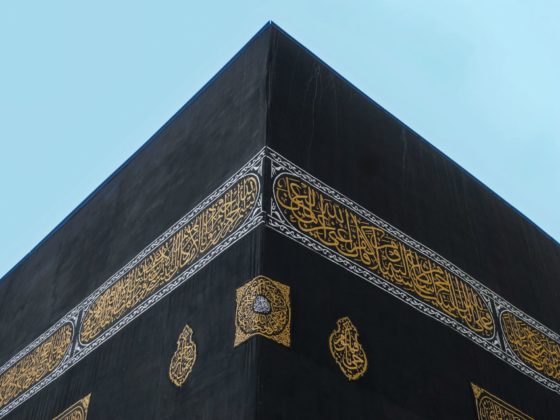The term “ismat,” generally translated as “purity,” carries a deeper meaning: “protection.” This protection applies to “ma’asum,” meaning “pure” and signifying “protected from sins and disobedience.” When we refer to “pure Imams,” we’re speaking of this very protection.
Ismat is a manifestation of Allah’s mercy. It shields individuals from disobeying Him while preserving their free will. If Allah removed this capacity, they would lack responsibility, unable to earn rewards or face punishment. The pure, however, possess the ability to disobey but choose not to, reflecting their inherent purity.
Allah creates all beings according to His foreknowledge. He brings them into existence from nothing, molding them according to their choices. The closer a being aligns with Allah’s plan, the less their actions deviate from His will. At the pinnacle of creation stands an entity whose actions mirror Allah’s perfectly, completely merging with His intentions. This entity is known as the Ahl ul-Bayt, the fourteen Infallible/Immaculate Ones (peace be upon them all). They are described as “the place of Allah’s plan” or “the vessels of Allah’s will.”
As it is narrated from them: “We are the place of the plan (mashiya) of Allah,” or as the Imam of the time says: “Our hearts are the vessels of the plan of Allah”
(Dala’ilu l-imamat, p. 506).
Through the Ahl ul-Bayt, Allah’s plan is realized, and their light shines upon all creation. Their authority is divine; their decisions, words, joy, and anger are His. Allah declares, “It was not you who threw when you threw, but Allah who threw” (8:17), emphasizing that even the Messenger’s actions are divine. He also says, “Your wali (guide) is only Allah, His Messenger, and those who believe and establish prayer and give zakat while bowing” (5:55).
Both Shia and Sunni interpretations agree that “those who believe and establish prayer and give zakat while bowing” refers to Ali ibn Abi Talib and the Imams who followed him. This verse asserts, “Your wali is Allah, the Messenger, and Ali.” The singular use of “wali” indicates their guidance is one and the same. Allah has merged His will with theirs, making their will His and His will theirs, without distinction.
This is the true essence of “purity.” Allah created a being that would embody His will and plan (mashiya), serving as His proof and sign. In its deepest sense, purity, or ismat, means the connection of the Ahl al-Bayt’s guidance with Allah’s, their actions with His, and their will with His. They are the light from which all creation originates, yet in their human form, they are individuals who “eat food and walk in the markets.” When Allah created Adam, He placed their light within him and commanded the angels to prostrate before it. But Iblis refused, leading Allah to ask, “O Iblis, what prevented you from prostrating yourself before the one whom I created with both My right hands? Are you arrogant or are you of the Most High?” (38:75). The Most High, in this context, refers to the Ahl al-Bayt, who were exempt from prostrating to Adam.
The attitude of Ahl al-Bayt (A) towards the action of Allah can be compared to a mirror reflecting light. The light of the sun falls equally on the earth and on the mirror, but the mirror shines, reflecting it, because of its greater capacity to receive it than the earth. And in this radiance there is no difference between the sun and the mirror.
Or it can be compared to a piece of iron placed in the fire. The attitude of Ahl al-Bayt (A) towards the plan or will of Allah (mashiya) is like the attitude of a piece of iron placed in the fire, towards combustion. In this combustion and heat itself, there is no difference between the fire and the piece of iron burning in it. But the fire can only be manifested through the piece of iron placed in it, because it does not heat itself. Thus, the piece of iron here is the place of action of fire, in which and through which the qualities of fire, such as heat or burning, are manifested. And in the same way, Ahl al-Bayt is the place of action of the plan (will) of Allah, through which His qualities (the qualities of Allah’s action) are manifested.
In the verses of the Quran and the Hadiths of the Incorruptible (A) there is a clear distinction between two degrees of Imamate – heavenly and earthly. The position of the “heavenly Imamate”, or the highest incorruptibility, is what we have said above: their union with the will of Allah and all His created attributes. The position of the “earthly Imamate”, or the lowest incorruptibility, is their guidance of people along the straight path and the delivery of the true religion, which requires complete protection from sins and mistakes. However, this protection itself is a consequence of that “highest incorruptibility”, through which the heavens and the earth exist, as Allah said in His Book: “All this Allah has created only through truth” (10:5), and the meaning of “truth” (haqq) here is the same as the highest incorruptibility.
As for the purity (ismat) of prophets, all 124,000 of them were pure from birth to death. Their purity, however, wasn’t inherent; it was bestowed by Ahl al-Bayt, the Fourteen Incorruptibles, who are the source of all purity and mercy from Allah. This borrowed purity signifies that prophets were created from the light of their own radiance and came with their divine religions, proclaiming the path to Allah.
Here’s a question: Does the ismat of prophets and Imams mean they are incapable of sin?
The answer is: Yes, they are capable of sin, but due to their profound knowledge, they abstain. Ismat doesn’t mean Allah forbids them from sinning; rather, their own enlightenment, purity, and righteousness prevent them from doing so. This can be likened to how we avoid poisoned water if we know it’s harmful. We have the ability to drink it, but our awareness of its consequences stops us. Similarly, the Immaculate refrain from sin because they know its consequences. Another analogy is found in the Hadith: Just as no one would eat their own excrement, despite the ability, the Immaculate avoid sin.
We also ask: How can prophets be immaculate when the Quran mentions their sins and censures them?
The answer is: This misunderstanding stems from ignorance and misinterpretation. The Quran doesn’t condemn prophets for sins; rather, it reproaches them for falling short of their divine potential, as seen with Adam and Yunus. This reproach acknowledges their high status and encourages them to repent, elevating their position further. Moreover, certain actions resembling mistakes or sins are allowed by prophets with divine permission for higher wisdom. For example, Musa chose seventy people by Allah’s command, but they turned out to be morally weak. This appeared as a mistake, but it served as a warning for future events, including the usurpation of power from Ali.
So here is a third question:
Why does the Quran say: “Say: “I am a man like you: I have received a revelation …” (18: 110); “The messengers said to them: “We are only people like you, but Allah bestows blessings on whomever He wills from among His servants …” (14: 11).
The answer is: All such verses indicate that the Messenger of Allah (S) is similar in appearance to other people. He is not an angel, not a jinn, or any other creature, but a human being like you – he has two ears, one nose, two hands, hair, legs, walks in the markets, etc. However, as far as his inner essence is concerned, the situation is completely different: “Indeed, your character is great” (68:4); “And he was at a distance of two bows and even closer…” (53:9). And if he had appeared to people in his true form, they would not have been able to talk to him or even look at him; moreover, they would all have burned up in an instant. And the proof for this is the story of the miraj. The Messenger of Allah (S), as is recognized by everyone, performed the miraj in his body, however, it was not an earthly one, but his true body, which is such that even Jabrail could not accompany him beyond a certain level, saying that if he went further, he would burn up. And if Jabrail himself would have burned, accompanying the Messenger of Allah (S) performing miraj in his real body, then what can we say about ordinary people? And therefore Allah gave him an ordinary earthly body, which, although it was more beautiful and perfect than the bodies of all other people, nevertheless, was not qualitatively different from them. Another meaning of the verse “I am a man like you” is that the Messenger of Allah (S) represents all of humanity. If his appearance were different, he could not be an argument over people. The third meaning of this verse: the Messenger (S) is like all people in the ability for him to commit sins and disobedience. As we have already said, Allah did not take away from him the very ability and strength to commit them. And fourthly: Allah commanded him to say that he is an ordinary human being, in the sense that he is a creation of Allah and not a deity. Allah mentioned this to prevent the development of teachings in the future that deify the Prophet or the Imams (peace be upon them), as the Christians did with Christ.
Question number 4: If the Prophets and Imams (peace be upon them) were blameless in the sense that Allah protected them from committing any sin, then they do not deserve any praise for their righteousness. After all, for us, ordinary people, leaving sins requires great efforts, for which we hope for a reward from the Almighty. But can there be a reward for those who were protected by the Almighty Himself from committing sins and for whom, therefore, leaving these sins did not cost any effort?
Answer: This would be so if Allah had given the Prophets and Imams (peace be upon them) blamelessness without any merit. However, He chose them for Ishma in accordance with their own choice and ability to accept this Ishma. In other words: Allah knew in His prior knowledge that they would deserve Ishma with their deeds, patience and devotion and would not contradict Him in anything – and therefore gave them this Ishma. This answer will be clearer if the reader considers that for Allah there is no past, present or future. Therefore, He purified them in the “past”, knowing their deeds in the “future”. As an example of this, you can imagine the world of zar, before our earthly world, when the call was made: “Who will give for My sake everything that I have provided for him on the tenth day of Muharram, in the land of Karbala?” – and Imam Hussein (A) came forward and said: “I”. And then Allah, knowing that he would do this, gave him the imamate and everything that He gave. And similarly, it was with the mission of all the prophets and imams.
The fifth question: Why did Allah not make me pure? Why did Allah give the “imamah” specifically to Muhammad, Fatima, Ali, Hasan, Hussein and other Imams? Why did He not give it to me?
Answer: Allah is capable of bestowing His favors on all His creatures, yet He does not require or depend on them. In His infinite wisdom and mercy, He has ordained that everything in His creation comes into existence through causes, one thing leading to another. Most creatures lack the capacity to accept what was granted to Muhammad and his Ahl al-Bayt (A). Allah, therefore, did not extend this blessing to them. It’s akin to a mirror reflecting sunlight due to its greater receptivity, while the earth cannot mirror it, despite the light being the same for both.
One more Question: Can an ordinary person achieve the level of chastity by merely refraining from sins? Will they then become like Ahl al-Bayt?
Answer: as we have discussed, chastity (ismat) is not merely the avoidance of sins but a unique position in the universe, chosen by Allah. No ordinary person, no matter their efforts, can attain the exalted status of Ahl al-Bayt (A) or even that of the 124,000 prophets (peace be upon them). Numerous Hadiths attest to this. We will cite just one from the ziyarat “Jami’a Kabirah” by Imam Hadi (A):
“Allah has raised you to the highest level of the honored
and the highest place of the close ones,
and the highest level of the messengers,
which no one can reach,
and no one can get ahead of you,
and no one can be before you,
and no one intends to reach your place –
neither the close angels,
nor the sent prophets,
neither the truthful, nor the martyrs,
neither the knowledgeable, nor the ignorant,
neither the worst, nor the best,
neither the sincere believers,
neither the corrupt sinners,
neither the stubborn oppressors,
neither the disobedient Satan,
nor any other creation that is among them.”
Allah created the descendants of Adam with their own place in the order of existence and set boundaries for them that cannot be overcome. The idea that an ordinary person can allegedly achieve innocence and even the position of Imams is widespread among the followers of Sufism. Based on the so-called “wahdat al-wujud”, they do not draw a boundary even between the Creator and the creation, asserting their “unity” (hence the very name of the doctrine – “the unity of existence”) – so what can we say about the boundaries within the creation itself! From them we can hear that a person is capable and must develop in himself the “sifats of Allah”, “merge with God”, etc. We have given a detailed criticism of this doctrine here, we will not repeat ourselves.
Question: Were people like Abul-Fazl Abbas (A) or Lady Zaynab (A) blameless?
Answer: They were not ma’asum in the sense that we have said about the ismat of Muhammad (S), Fatimah (A) and the twelve Imams (A). However, we can say about them that they were of “minor blamelessness”. Allah chose them, created them from the light of the fourteen Immaculate (A) and destined them for the great mission for which He destined them. Therefore, it is impossible to imagine that even the slightest sin or disobedience to Allah emanated from Abbas (A) or Zaynab (A).
Question: If the Imams (A) are blameless, then why did they ask Allah for forgiveness?
Answer: Their asking Allah for forgiveness does not mean that they committed sins. Firstly, the prayers of the Messenger of Allah (S) and the Imams of his lineage (A) for forgiveness were a way of teaching Muslims to ask forgiveness from Allah. How could they do this except by showing by their own example? Secondly, asking for forgiveness in Islam does not necessarily imply the sins a person has committed. Sheikh Kulayni reports that Abrash Kalbi said to Imam Baqir (A): “I have no children. Teach me something so that I can have a child.” He said: “Ask forgiveness from Allah every day or night a hundred times. For Allah said: “Ask forgiveness of your Lord, for He is the Forgiving. He will send down rain upon you from the sky, and will provide you with wealth and children, and will make for you gardens, and will make for you rivers.” (Kafi, Vol. 6, Page 8). Thirdly, the Imams’ (A) request for forgiveness did not imply repentance for their sins, but gratitude to Allah for the blessings He bestowed upon them, and asking Him not to allow them to commit sins or commit any disobedience in the future, forever and ever. Fourthly, the Ismat of Ahl al-Bayt (A) is perfect and implies endless improvement. As Allah said to His Prophet: “And say: ‘O my Lord, increase me in knowledge.’” (20:114).
The approach to Allah knows no limit and never ends. It will continue forever, and the knowledge, wisdom, strength and purity of Ahl al-Bayt (A) will also increase forever.
